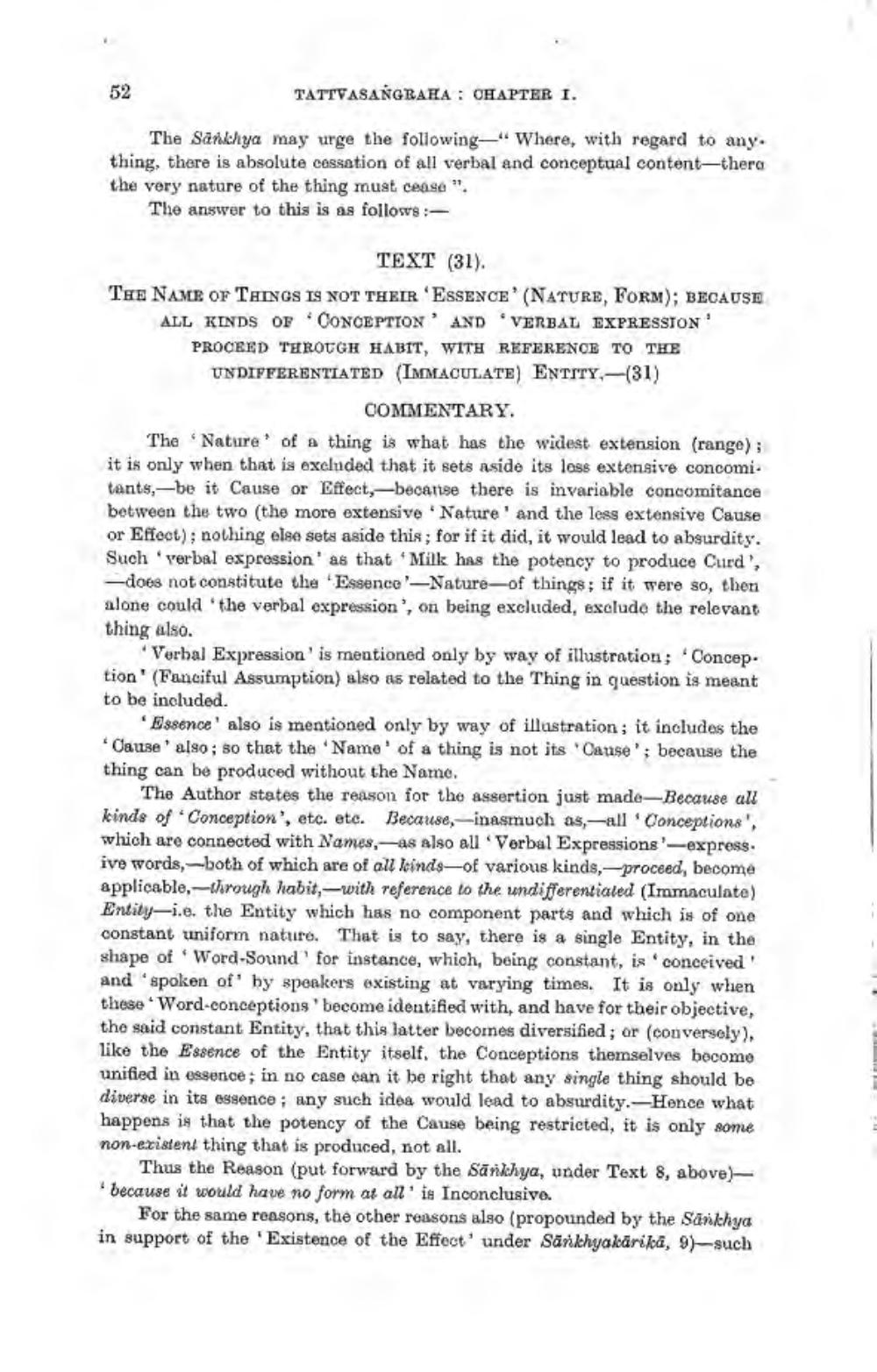________________
TATTVASANGRAHA : CHAPTER I.
The Sanchya may urge the following—"Where, with regard to any. thing, there is absolute cessation of all verbal and conceptual content/thera the very nature of the thing must cease".
The answer to this is as follows:
TEXT (31). THE NAME OF THINGS IS NOT THEIR 'ESSENCE' (NATURE, FORM); BECAUSE
ALL KINDS OF CONCEPTION AND VERBAL EXPRESSION
PROCEED THROUGK HABIT, WITH REFERENCE TO THE UNDIFFERENTIATED (IMMACULATE) Entry -(31)
COMMENTARY The Nature of a thing is what has the widest extension (range); it is only when that is excluded that it sets aside its less extensive concomi. tants,-be it Cause or Effect, -becanse there is invariable concomitance between the two (the more extensive Nature' and the less extensive Cause or Effect); nothing else sets aside this; for if it did, it would lead to absurdity. Such 'verbal expression as that 'Milk has the potency to produce Curd',
-does not constitute the Essence'-Nature-of things; if it were so, then alone could 'the verbal expression, on being excluded, exclude the relevant thing also.
Verbal Expression' is mentioned only by way of illustration; Concep. tion' (Fanciful Assumption) also as related to the Thing in question is meant to be included.
Essence' also is mentioned only by way of illustration; it includes the Cause' also; so that the Name of a thing is not its 'Cause'; because the thing can be produced without the Name.
The Author states the reason for the assertion just made-Because all kinds of Conception', etc. etc. Because, -inasmuch as-all 'Conceptions', which are connected with Names, -as also all'Verbal Expressions'-express. ive words, both of which are of all leinds-of various kinds,-proceed, become applicable,-through habit,-with reference to the undifferentialed (Immaculate) Entity-i.e. the Entity which has no component parts and which is of one constant uniform nature. That is to say, there is a single Entity, in the shape of Word-Sound' for instance, which, being constant, is conceived and spoken of' hy speakers existing at varying times. It is only when these Word-conceptions' become identified with, and have for their objective, the said constant Entity, that this latter becomes diversified; or (conversely), like the Essence of the Entity itself, the Conceptions themselves become unified in essence; in no case can it be right that any single thing should be diverse in its essence ; any such idea would lead to absurdity.--Hence what happens is that the potency of the Cause being restricted, it is only some non-existent thing that is produced, not all.
Thus the Reason (put forward by the Sankhya, under Text 8, above) because it would have no form at all' is Inconclusive.
For the same reasons, the other reasons also (propounded by the Sankhya in support of the 'Existence of the Effect' under Sänkhyakarikā, 9)-such




